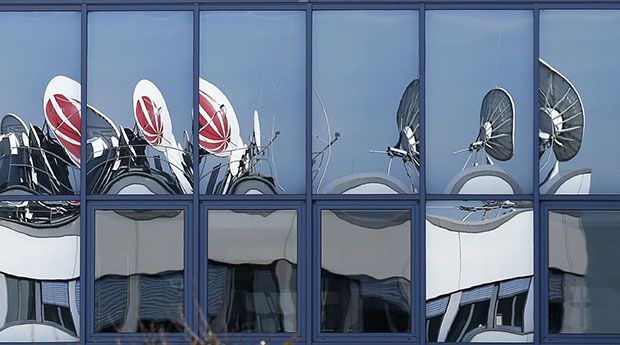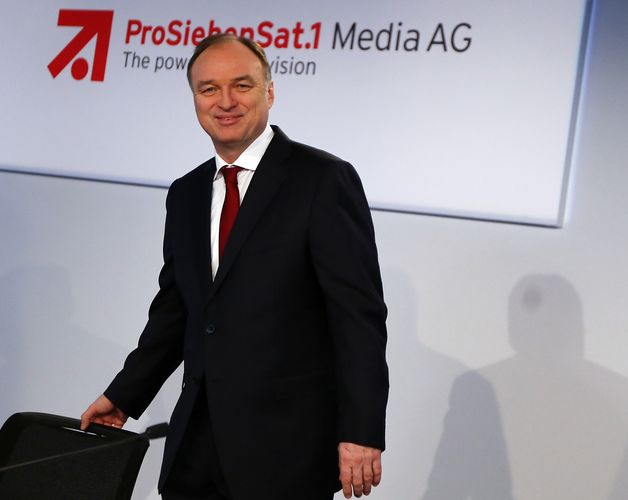After parting company with its private equity owners, ProSiebenSat.1 seized the opportunity to refinance its debt to diversify its investor base and cut costs.
To see the digital version of this report, please click here.
To purchase printed copies or a PDF of this report, please email gloria.balbastro@thomsonreuters.com.
One of Europe’s biggest media companies, ProSiebenSat.1 Group’s core business is television broadcasting, free to view and financed by advertising. Today, the company reaches 42m households in Germany, Austria and Switzerland, via its 15 channels.
The group’s operations have not always been so concentrated. Until 2010–11 the group had competed as a pan-European broadcaster, but at that time it decided to focus on its core German-speaking markets. In 2011, it sold its Benelux businesses for €1.2bn, with the proceeds used to repay debt. In 2013, its Nordic businesses were also sold, for €1.3bn, with €500m of that also used for debt repayment.
That was just the beginning, and in the past 12 months it has been focusing on its ownership and financing structure. In January, private equity owners KKR and Permira ended their association with the Frankfurt and Luxembourg-listed company, lifting its free float to about 97%. That has paved the way for its inclusion in the DAX 30 when the review committee meets in September.
The divestment was a drawn-out process stretching back for more than a year. In February 2013, KKR and Permira sold €485m of non-voting preference shares, following up in September with a further sale of ordinary shares.
JP Morgan acted as sole bookrunner on the latter sale, offloading €766.75m of shares, representing 25 days’ trading volume. That left the private equity companies with a combined stake of around 33%.
In November, they followed up with another 16% sale at €31.53 via Bank of America Merrill Lynch and JP Morgan. The final 16.59% of shares were sold in January, with Deutsche Bank this time joining Bank of America. The deal was priced at €34.75, a 0.71% discount to the previous closing price of €35. This netted KKR and Permira €1.26bn.
Bankers had suggested the proceeds from its earlier preference share sale might be used to revise the capital structure of the company, and so it proved.
Extend and diversify
“We looked at our balance sheet to see if we could optimise our cost of funding and further improve our financing terms,” said Ralf Gierig, executive vice-president of group finance and investor relations. “Apart from terms and conditions we had two other objectives: to extend the maturity and diversify the funding base.”
The refinancing began in May 2013 when ProSiebenSat.1 took advantage of strong market conditions to extend the maturity of its €1.9bn existing debt to July 2018. UniCredit and BNP Paribas arranged a new Term Loan B with a margin of 275bp, with an extension fee of 20bp and a consent fee of 5bp. The deal received consent from 97% of the syndicate, with more than 80% agreeing to extend.
Nearly a year later ProSiebenSat.1 was back again to refinance its debt facilities in a two-part deal. The group had posted solid fourth-quarter results, with recurring Ebitda of €302.1m, which ProSiebenSat.1 said, along with consolidated underlying net income, should increase further in 2014. The group also predicted 2014 revenues would rise by a mid to high single-digit percentage. It therefore found the market receptive to its plans.
The first part of the deal saw the issue of €600m seven-year senior unsecured notes, due in April 2021, bearing interest of 2.625% per year. Despite being unrated, the bonds achieved investment-grade execution and pricing, using high-grade documentation and marketing at the 150bp area over mid-swaps. This was narrowed to 140bp–145bp, after the leads received more than €2bn of orders from 200 accounts.
This was supplemented with a new €2bn senior unsecured syndicated facilities agreement maturing in April 2019. The deal comprised a €1.4bn five-year senior unsecured bullet term loan and a €600m five-year senior unsecured revolving credit facility.
This refinanced and replaced in full the senior secured bullet term debt of €1.86bn maturing in July 2018. The new RCF maturing in April 2019 replaces the undrawn existing RCF with a maturity in July 2018.
Having had more than 100 lender relationships under its former financing arrangements, the new deal left ProSiebenSat.1 with a tighter group of 12 relationship banks: BNP Paribas, Bank of Tokyo-Mitsubishi UFJ, BayernLB, Commerzbank, Credit Agricole, DNB Bank, ING, Royal Bank of Scotland, SEB, Societe Generale and UniCredit acted as co-ordinating bookrunners and mandated lead arrangers on the financing, with SMBC as a mandated lead arranger.
“A lot of our former lenders were LBO-style institutional investors, including CLOs and CDOs,” said Gierig. “But as we evolved into a high-grade borrower issuing in the senior unsecured market, the new pricing and documentation terms no longer made sense for these lenders.”
However, it has not lost these relationships. “Many of the same lenders have other funds for high-grade investments and many of them are now among the 230 investors on the initial book for our notes,” he said.
Following completion of the refinancing, the new pricing terms will yield an improvement in financing costs and cashflows before tax of around €50m over a four-year period.
“The issuance of the notes and the new syndicated facilities agreement allows ProSiebenSat.1 to implement a further improved financing structure,” said Axel Salzmann, CFO at ProSiebenSat.1, at the time.
“We have diversified our funding base and implemented a further extended and staggered maturity profile at improved pricing and documentation terms. The attractiveness of ProSiebenSat.1 to investors is underpinned by the fact that both the bond and the new syndicated facilities agreement were significantly oversubscribed.”
The group is satisfied with the results of its efforts to-date and has no plans to return to the market this year, said Gierig.
“Our financing is in place to 2019–21 and we are happy with the attractive pricing we have achieved,” he said.
“We are opportunistic and may look to reduce the bank portion of our financing and increase the bond portion in the future. We want to extend a maturity profile further, out to seven to 10 years, so we will look at it again. But that will not be this year.”

